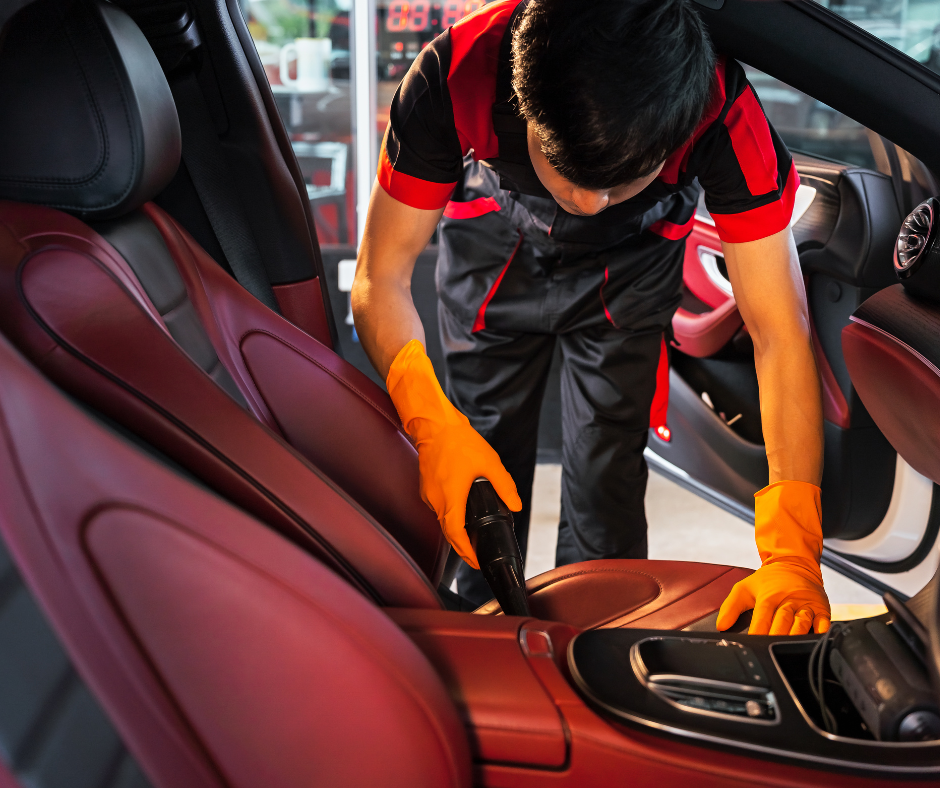Spring Cleaning: 7 Important Car Maintenance Tips
Each season comes with its own set of car maintenance tips, whether it’s preparing for the cold winter months or extreme summer heat. By properly maintaining your vehicle throughout the course of the year, you can increase safety, lower the costs of repairs, and improve the overall performance, health, and features.
After the cold temperatures, road salt and sand can build up under your car, along with other seasonal wear and tear. April is National Car Care Month, which makes it the perfect time to “spring clean” your car and take preventative measures to make sure your car is running smoothly headed safely into the Spring season.
This blog post covers 7 important spring car maintenance tips you can follow to avoid serious issues in the future.
7 Tips for Spring Cleaning Car Maintenance
Test Your Car Battery
A strong battery can determine a safe and successful commute or stressful morning.
Low winter temperatures can slow the chemical reaction in your battery, causing it to work harder. Most batteries lose about 20% of their normal capacity around 32 degrees and continually gets worse when temperatures go below freezing. Batteries that are a few years old already may need replacing altogether.
Headed into warmer weather, it’s a good idea to get the battery longevity tested. A mechanic can check to make sure it’s properly mounted, it has a strong connection, and it’s free of any winter damage.
Check Under the Hood
It’s a good idea to check all fluid levels to see if there’s anything critical you need to top off or change. Here are 5 fluids to check under the hood.
- Engine Oil
- Transmission Fluid
- Coolant
- Windshield Wiper Fluid
- Power Steering Fluid
Each of these fluids help to support your car functioning to its best ability. Your mechanic will be able to tell you what needs to be changed and how often, depending on your model car. Taking the proper steps to ensure this has been checked is an important part of regular car care.
Tire Rotation Maintenance
Tire rotation is an important part in upkeeping your vehicle. Tires should wear evenly so rotating them on a regular schedule (or replacing winter tires) is a great way to keep them lasting.
Tire pressure can decrease due to temperature drops. This does not mean there’s air escaping from your tire but inside the tire is condensing. You might notice in the winter you need to add air to your tires more regularly. With the temperature changing make sure you’re prepared. Check your tire arrangement and equilibrium and rotate them if necessary. Be sure to keep an eye on tire pressure throughout the season and always check the pressure before long trips.
Replace Windshield Wiper Blades
Windshield wiper blades often spend months clearing way ice and snow. This can leave them bent, cracked, or warped. Gear up for spring and summer rainstorms by replacing your windshield wipers. You can easily change them yourself, without having to bring your car in for service. Check your vehicle manual to make sure you get the correct size and always test them before driving in poor weather.
Check the Air Conditioning
Before the hot and humid weather, now is a good time to make sure your air conditioner is in working order. At a routine maintenance check, a mechanic can check the system for any damage or needed repairs.
Clean Cabin Filters
The cabin filter helps to remove any allergens, pollutants, and dust as air travels through your car’s HVAC system. When the filter is old and clogged, it can contribute to spring allergies, leaving you feeling stuffy. You might notice a musty smell in your car or possibly more dust on the interior of your dashboard. Typically, a cabin filter should be replaced about every 15k miles. It’s a good idea to check the last time it was replaced prior to the allergy season ahead.
Change Your Oil
Regular oil changes are crucial to the longevity of your vehicle. Oil changes help to reduce and remove any excess dirt and build up from your car engine. Fresh oil helps your car to run smoothly, increase performance and use fuel a lot more efficiently. This means better gas mileage and cost-savings. The cold weather can reduce the life of your engine oil, meaning you need more frequent oil changes during this time of year. Spring is the perfect time to have your oil checked and changed if necessary.
Importance of Car Maintenance
Car maintenance consists of regularly servicing your vehicle, including inspections, updating and replacing parts and fluids, and cleaning. Regular service to your vehicle will help improve your safety and reliability. Staying on top of key maintenance can also save you major costs and repairs by identifying potential red flags before they are a serious problem.
Follow these spring maintenance tips to help improve the overall health of your vehicle.
